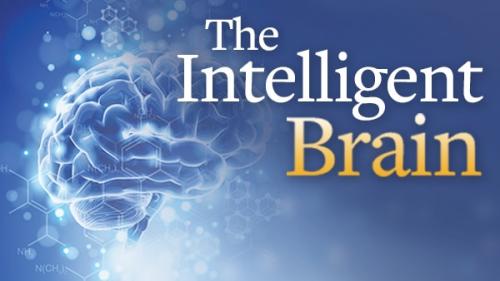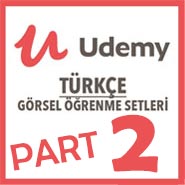TheGreatCoursesPlus - The Intelligent Brain
Plunge into a myriad of thought-provoking issues with a pioneer professor and researcher in psychology to better understand what intelligence is and how it works.
1: What Is Intelligence?
- Probe the nature of intelligence by looking first at the phenomenon of savants-individuals who excel at a narrow mental skill. Does this qualify as intelligence? Examine how intelligence is defined, and explore its connection to IQ and a variable called g, which is the conjectured general factor of intelligence....
2: Assessing Intelligence
- What does an IQ test measure? Study the history of intelligence tests, including the Stanford-Binet test and the Wechsler Adult Intelligence Scale. Consider typical questions used to measure intelligence, and learn how they are designed to avoid bias. Also look at the SAT for college admission....
3: General Intelligence in Everyday Life
- Survey the importance of intelligence in 10 areas of everyday life, from school success to managing money to making medical decisions. What does the g factor predict about the ability to cope in these situations? Finally, consider the implications of such predictions for public policy....
4: To g or Not to g-Is That the Question?
- Analyze a model of intelligence that incorporates two special factors: fluid intelligence and crystallized intelligence. Then explore alternatives to the g concept, including Robert Sternberg's theory of practical intelligence and Howard Gardner's theory of multiple intelligences. What is the evidence for these ideas?...
5: Intelligence and Genius over the Life Span
- Follow the careers of geniuses throughout their lives in three classic studies that began in California in the 1920s, Scotland in the 1930s, and Baltimore in the 1970s. Each study started when the test subjects were children, testing their mental abilities and successes at various intervals....
6: Early Childhood Experience and Intelligence
- Do early childhood experiences affect intelligence? Look at the value of compensatory education, which was evaluated in what may be the most controversial article in the history of psychology. Then examine the impact of environmental elements, such as culture, birth order, and family size....
7: Genes and Intelligence
- Are there intelligence genes? Delve into the connection between genes and intellectual capacity, focusing on the search for relevant genes and environmental triggers that may govern gene expression. Also examine the history of intelligence research on identical twins, particularly those reared apart....
8: Can We See Intelligence in the Brain?
- Brain imaging technology may be the most important development in intelligence research in the last 40 years. Explore positron emission tomography, or PET, which highlights areas of the brain that are working hardest. Learn that these data correlate in an unexpected way with intelligence....
9: What Brain Imaging Reveals about Intelligence
- Turn to magnetic resonance imaging, or MRI, a technique that can measure brain structure and changing brain activity. Among other findings, MRI scans suggest that men and women may have different brain areas related to the g factor. Also investigate a new brain imaging technology called magneto-encephalogram, or MEG....
10: Intelligence and the Brains of Children
- Examine research about intelligence and the brains of children and adolescents. Focus on three questions: What aspects of brain development are related to intelligence? Are these developmental factors essentially the same for everyone? Is there a critical period when these factors can be influenced?...
11: Sex and Intelligence
- Survey average differences between the sexes in specific mental abilities, such as verbal fluency, fine motor skills, and mathematical and scientific reasoning. Do different performances in these spheres relate to sex differences in the brain? Do these differences help explain the disparity of men and women in certain professions?...
12: Race and Intelligence
- Tests such as the SAT show a persistent performance gap connected to race. This is one of the most volatile issues in the social sciences. Use the information developed in the course so far to analyze the issues and possible causes and remedies for closing the gap....
13: Are We Really Getting Smarter?
- Delve into the controversy over the Flynn effect, named for psychologist James R. Flynn, who was one of the first to study the phenomenon of worldwide rising IQ scores. Is each generation really smarter than the last? If so, does this trend disprove a major role for genetics in intelligence?...
14: The Mind in Milliseconds
- Scores on intelligence tests are only meaningful compared to those of other people. In this lecture, explore a simple and easy way to estimate intelligence in absolute terms. Also, learn about the concept of "mental chronometry" to measure intelligence as proposed by the prolific and controversial researcher, Arthur Jensen of the University of California, Berkeley....
15: Creativity and Intelligence
- Examine rare cases in which brain trauma unleashes hidden powers of creativity. How do such examples shed light on the problem of defining and measuring creativity? Next, probe the connection between creativity and intelligence, and explore intriguing clues from brain imaging studies....
16: Can Intelligence Be Enhanced?
- Look into the future of intelligence enhancement, which may involve gene manipulation and an understanding of how specific genes function to increase intelligence. Then cover two nongenetic techniques that are being researched currently: memory training and an approach that promotes accelerated learning with mild electric shocks to the brain....
17: Intelligence, Child Rearing, and Education
- Probe the potential for brain imaging to evaluate a student's cognitive abilities. Can brain data be used to create a profile that would predict not only the pattern of cognitive strengths and weaknesses, but also how to tailor education for a person with that pattern?...
18: The IQ Pill
- If we could raise intelligence, should we? Consider the current controversy over the use of drugs by students to get better test scores. What about the future, when drugs to enhance memory, attention, and learning may be vastly better? Probe the ethical quandaries we may soon face in pursuit of ever-greater intelligence....

The.Intelligent.Brain.part1.GC.rar
The.Intelligent.Brain.part2.GC.rar

































